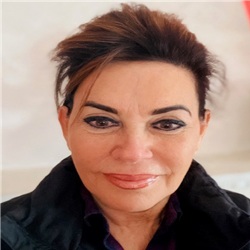Communication and empathy for her students are two of the biggest strengths that have allowed Dr. Denise Howard to excel as a nurse educator. “If there's something they need, I'm there to assist and guide,” she says. “I put a lot of time and effort into shaping the students because I want them to be successful. I want them to fulfill their dreams.”
 Dr. Howard, who has worked in education since 2008, is passionate about teaching adult learners. Throughout her career, she has taught Bachelor of Science in Nursing (BSN), Master of Science in Nursing (MSN), and Doctor of Nursing Practice (DNP) students. She has also been a program director for several nursing programs.
Dr. Howard, who has worked in education since 2008, is passionate about teaching adult learners. Throughout her career, she has taught Bachelor of Science in Nursing (BSN), Master of Science in Nursing (MSN), and Doctor of Nursing Practice (DNP) students. She has also been a program director for several nursing programs.
For the last three years, Dr. Howard has been a professor in the online nursing programs at the South University College of Nursing and Public Health. In 2024, South University recognized her with a DAISY Award for Extraordinary Nurse Educators.
Drawing on Personal Experience
Dr. Howard got her start in nursing in the early 1980s. Before finding her way to education, she worked in medical-surgical nursing, cardiology, home health, and dermatology. Eventually, Dr. Howard started volunteering with nursing students and faculty at a local university. Before long, she enrolled in the RN to BSN program. She earned her MSN next, with a capstone focused on what it takes for RN to BSNs to succeed when returning to the academic environment. Following that program, she also completed her DNP.
Having gone back to school as a recently divorced mother of three kids, Dr. Howard understands the fears and challenges students may face. She recalls being a new student and struggling with writing and formatting scholarly papers, using a virtual library, and figuring out exactly what was expected of her in each course. That experience is one Dr. Howard hasn’t forgotten. It guides her approach to teaching.
Dr. Howard credits a large part of her success in school to the support, time, and patience of her instructors. Now, she follows the example they set for her. She is careful to explain information and instructions in detail to her classes. She reminds students often that she’s reachable on her phone and email for any questions. She never wants people to waste time being anxious or unsure, so she does her best to respond promptly to every student.
“There's not a dumb question out there. If you don't ask the question, somebody else is thinking it, so just ask,” she asserts.
Building Lasting Student-Instructor Connections
Today, many past students of Dr. Howard still turn to her for advice or help. These connections are a result of the efforts she makes to get to know her students as well as the respect she has for them.
In the DNP program at South University, Dr. Howard calls each student to introduce herself at the start of class and encourages them to contact her anytime. She checks in on students if they fall behind on coursework or discussion posts. She wants to provide a reminder but also make sure everything is okay and see if she can help.
“Sometimes you just need a bit of encouragement, or maybe there are resources you have no idea about that we can guide you to. That's what I do,” says Dr. Howard.
Dr. Howard recognizes that her graduate students are taking the initiative to grow and pursue their goals. They are often older than traditional college students. Many are working. Some have children. Others do not speak English as their primary language. No matter the situation, Dr. Howard has empathy and admiration.
“They’ve worked hard,” she says. “Going back to school and trying to educate yourself speaks volumes. You've decided to go back to school and commit to something, and who's your cheerleading section? A lot of people don't have that. Their classmates can become that, but I also become that cheerleader. I’m here to say that you can do this.”




